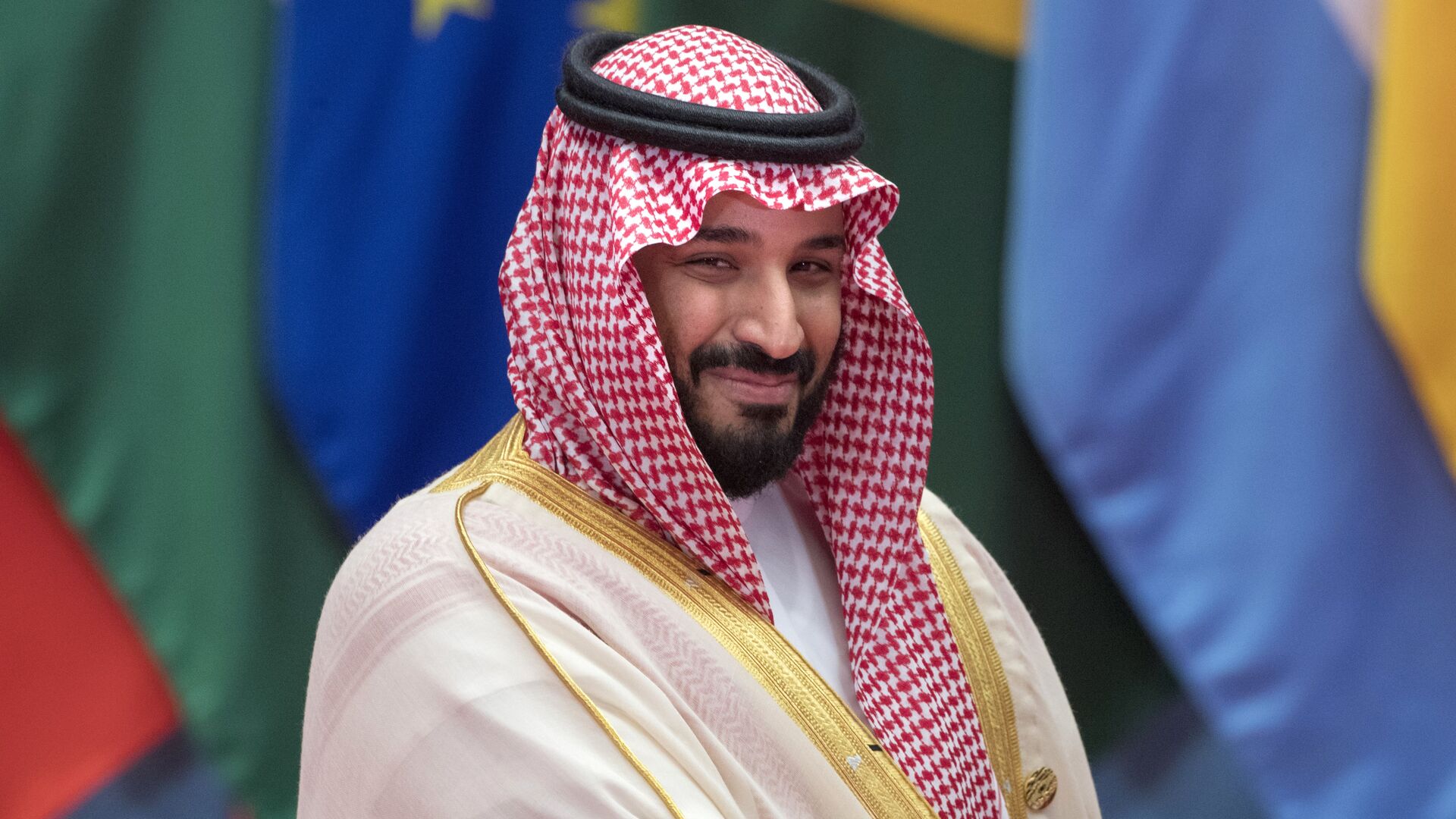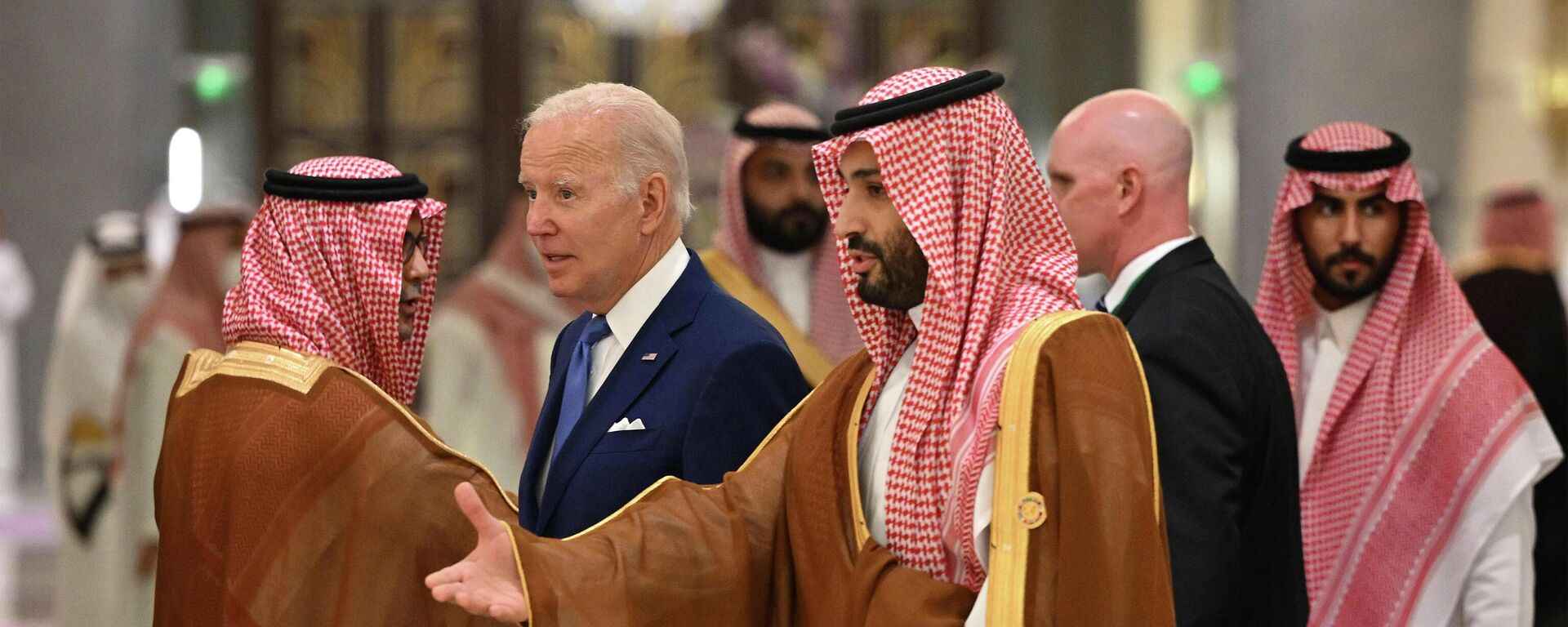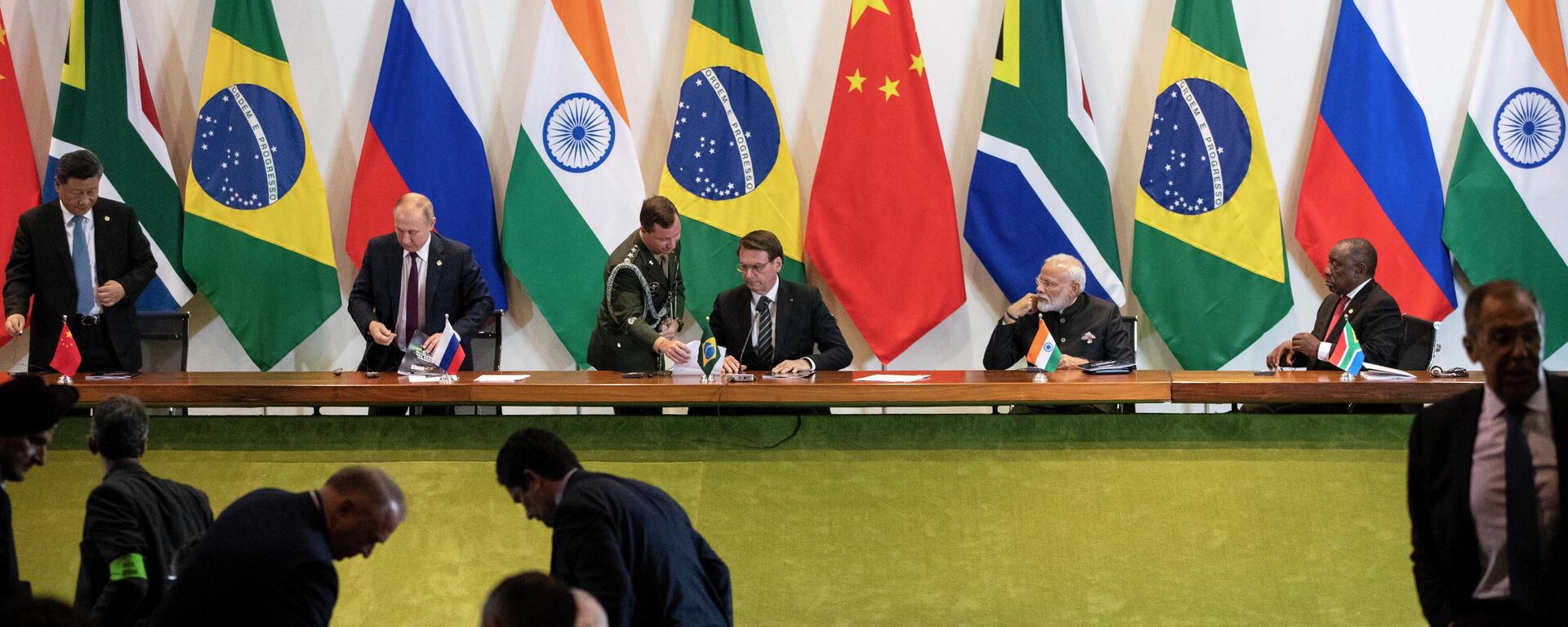From Energy to Security: Did Biden Get Everything He Wanted From Saudi Arabia?
19:09 GMT 16.07.2022 (Updated: 11:20 GMT 08.08.2022)

© Sputnik / Sergey Guneev
Subscribe
Joe Biden's visit to Saudi Arabia and meeting with Crown Prince Mohammed bin Salman gave a real buzz to the US press weeks before the US president's Middle Eastern trip. Has Biden managed to reset relations with the KSA and assert US leadership positions in the region?
The energy issue appeared to be the real reason behind Biden's visit to the Saudi kingdom, which he promised to turn into a "pariah state" on the campaign trail in 2019-2020. Since the beginning of 2021, prices for oil have soared more than two-fold in the US, prompting the Biden administration to seek ways to convince the Saudis and their OPEC allies to step up crude production in order to bring energy costs down.
"The oil policy in Saudi Arabia pretty much is set," said Dr. Ahmed Al Ibrahim, a Riyadh-based political analyst. "They are monitoring the market and they are floating the market with supply chains consistently with the demand. They cannot overdo that because it does not help the market and the OPEC+ members. And also Saudi Arabia is burdened by contracts where they cannot really actually go by themselves and take the decision. They are part of an OPEC+ and these countries, they said they are very efficient and the energy prices are very good."
The political scientist highlighted that "there is no margin of complimenting the United States just because they needed more oil in the market for whatever reason." Moreover, according to the professor, the oil market is already saturated with oil and further extraction may only disrupt the balance. On June 30, officials from OPEC, Russia and other oil-producing countries confirmed their decision taken in May to increase output by 648,000 barrels per day in August.
"I think most of the OPEC+ countries, they've reached almost the maximum output," explained Al Ibrahim, adding that he does not see a way to considerably step up oil extraction in the foreseeable future.
Crown Prince Mohammed bin Salman (MBS) stated on July 16 that the only thing Riyadh can do is boost crude production from 10 million barrels per day to 13 million per day by 2027, adding that there is no additional capacity beyond that. MBS also highlighted that unified efforts are required to keep the global economy afloat, and that unrealistic policies regarding energy sources could instigate further inflation.
Middle Eastern Players’ Security Concerns
Meanwhile, Saudi Arabia and the United Arab Emirates (UAE) are seeking the US’ concrete commitment to improve mutual ties. During the July 16 Jeddah Summit for Security and Development, which brought together the six members of the Gulf Cooperation Council (GCC) alongside Egypt, Jordan and Iraq, Biden vowed that the US would remain fully engaged in the Middle East. The US president particularly said that the US would not "leave a vacuum to be filled by China, Russia or Iran."
"We will have to take from President Biden's word that America is not turning its back on the region, that America will defend its interests in the region," said Dr. Abdulkhaleq Abdulla, professor of political science at Emirates University and author of several books, including The Gulf Moment. "However, the future will reveal to what extent that is true."
Riyadh previously voiced concerns over the Biden administration putting US-Saudi arms deals on pause, as well as the White House's talks over the resumption of the Iran nuclear deal. In addition to that, it turned out in June 2021 that the Pentagon had pulled approximately eight Patriot anti-missile batteries from Iraq, Kuwait, Jordan, and Saudi Arabia. The Terminal High Altitude Area Defense (THAAD) anti-missile system was also withdrawn from Saudi Arabia at that time, according to the Wall Street Journal.
The professor drew attention to the fact that Washington has recently shifted its focus to Europe and to the Indo-Pacific from the Middle East. According to Abdulla, the Biden administration appears to be preoccupied with Ukraine and its rivalry with China, which is currently emerging as an economic superpower. "So whether America will pay attention to the Middle East in light of all of this preoccupation, that is something we will just have to watch for the days and months and years to come," he noted.
Dr. Ahmed Al Ibrahim echoes the Emirati professor's concerns: while the US and especially its military and intelligence community remain an important ally for Saudi Arabia, Riyadh cannot rely on the rapidly changing mood of the Democratic establishment, citing Biden's recent U-turn.
"Now, Biden is saying all that stuff," Al Ibrahim said. "Let's see if this administration will keep their part of the bargain or in three years another president comes and he decides to basically wipe up everything Biden said or actually recognize the region even more. Saudi Arabia is injured by the 18 months that this administration has ruptured the relationship with [Riyadh]. And we need to be shown some real solid commitment from the US in order for Saudi Arabia to recover from the mistrust and misunderstanding by this administration that did to us in the past 18 months."
Given that, neither Saudi Arabia nor Egypt, Israel or Iraq are going "to put all their eggs in one basket," Al Ibrahim pointed out, in an apparent reference to the potential diversification of diplomatic ties.
Earlier this week, Purnima Anand, the president of the BRICS International Forum, told Russian newspaper Izvestia that Turkey, Egypt, and Saudi Arabia are preparing to formally apply for membership in BRICS, an acronym for five emerging economies, Brazil, Russia, India, China and South Africa.
Washington's Politicization of Khashoggi Case
It appears that US President Joe Biden could not help but raise the issue of the killing of Jamal Khashoggi once again during his trip, even though the Saudi kingdom conducted an extensive investigation into the crime and prosecuted eight culprits. Khashoggi's son Salah later announced that the Saudi judiciary had been fair to his family and that "justice has been achieved".
According to the Gulf observers, Biden's latest remark that he considers the crown prince responsible for the tragedy was primarily aimed at his electoral base ahead of the November midterm elections.
"President Biden, even when he is here in the region, has his mind in Washington and is speaking to an audience in America," said Abdulla. "And probably he wants to capitalize on his appearance in Washington, in Riyadh and in Jeddah. And he knows it is a large segment in his own party, the ones to the left listen to him very carefully, evaluating him."
The crown prince's answer was not long in coming: MBS told the US president that Saudi Arabia has dealt with the issue and that the country's justices had a final say.
Riyadh is well aware that the Khashoggi issue is highly politicized by Washington and is resolutely withstanding the White House's allegations, noted Al Ibrahim. In response to the Biden administration's accusations MBS cited the Abu Ghraib torture and prisoner abuse committed by the US military and CIA personnel in Iraq in the early 2000s, stressing that rogue incidents took place under the US watch too. Riyadh also drew attention to the fact that in the same year that Khashoggi was murdered, over 248 journalists were killed across the world and nobody is talking about them, Al Ibrahim concluded.
"Did Biden get everything he wanted from this [Jeddah] meeting?" asks Abdulla. "I think if he goes away with the view that he is from now on dealing with a new Gulf that deserves respect and new Gulf leaders who are now not necessarily the same as the old leaders. They have a new agenda. They have a new view. They have their own new vision."
The only question is whether Washington has understood this and will reconcile itself with this new reality, the professor noted.




